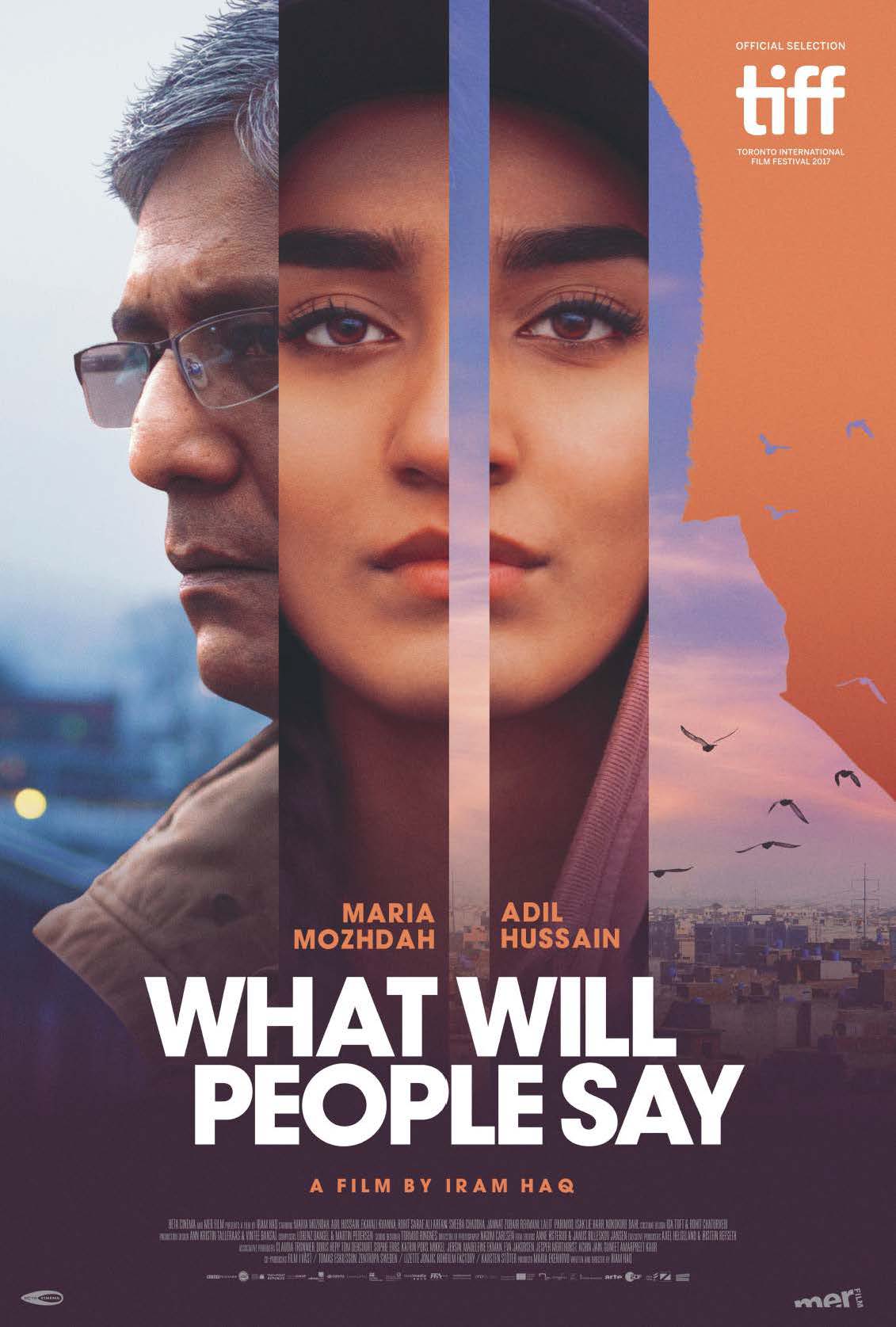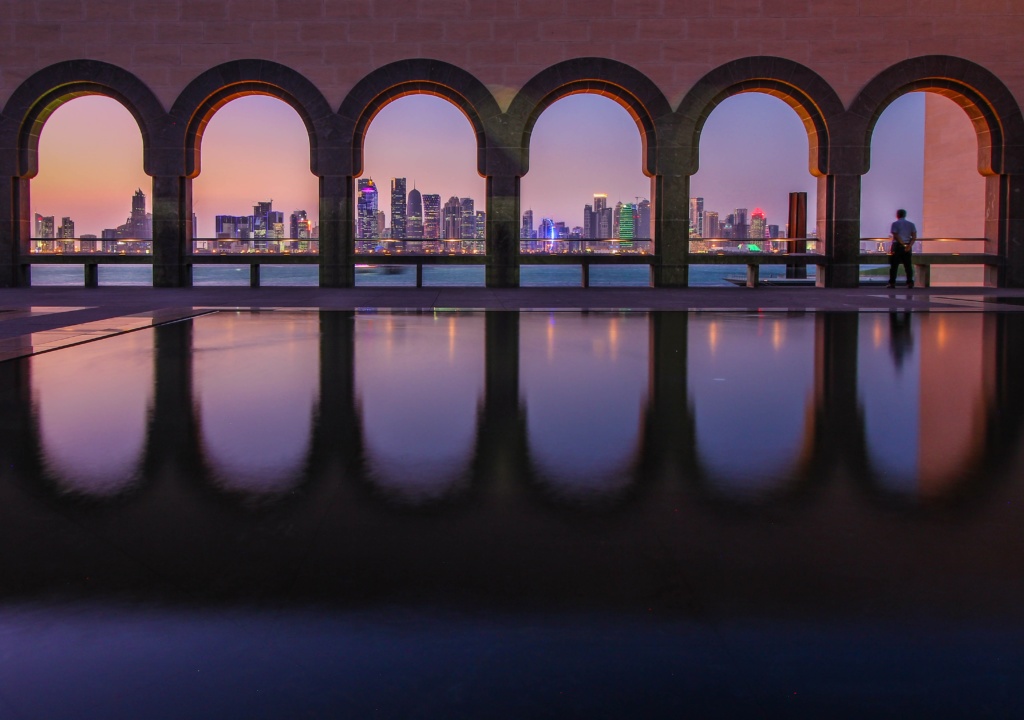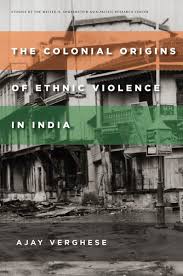**Caution: Spoilers Ahead**

I was watching the film ‘What will people say’ (courtesy, Kanopy), an official selection at the Toronto film festival in 2018. It is a story familiar to anyone who grew up in Pakistan or in a desi family abroad. A young, second-generation Pakistani teenage girl (Nisha) in Norway wants to live her life like any other teenager in her peer group but is restricted by her parents. Like most rebellious teenagers anywhere in the world, she finds ways to do what she wants to do (go out partying with a friend in the middle of the night) but stops just shy of having physical relations with one of her guy friends. One such day, she gets caught by her father who finds one of her male Norwegian friends in her room and starts beating him and then turns his fury on her. A neighbor calls the police and Nisha is escorted to a safe place by Norway’s version of the CPS.
After spending a night at CPS, Nisha’s mother calls her to tell her that everything will be okay and that her father will pick her up from CPS in a few minutes. Nisha, being a teenager, falls for this trap. She ends up on a flight to Pakistan with her father. Her father leaves her at his sister’s house and returns to Norway the next day. Nisha tries to contact someone in Norway but she has no access to international calling or internet. Her first night, she tries to run away in the streets but comes back to find her aunt at the door telling her that the nearest airports in 350 Kilometers away. At another instance, she tries to send a message to one of her Norwegian friends via facebook through a net cafe but is caught and her Norwegian passport is burned. She spends eight months at that place. While she is there, she falls for one of her male cousins living in the same house.
One night, they are caught kissing at night by local police who beat him mercilessly and ask her to strip at gunpoint. The police then ask the guy to fondle her in front of them, all while taking photos of them. The couple is then dragged to their house and police demand money in exchange for deleting those photos. Nisha’s father is summoned from Norway by the Pakistani relatives and she is sent back. While Nisha’s father is in Pakistan, he spits at her face and then takes her in a taxi to the top of a mountain and orders her to jump from there. She tries to plead with him while he throttles her and tries to push her. He is unable to, and they end up back in Norway.
There is a family meal and her mother tells her that they are giving her a final chance. The prospect of her becoming a doctor is brought up and that it would be one way in which the honor of family can be redeemed. Some of the dialogues used by her mother upon her return are,
“People don’t even invite is to weddings anymore.”
“I wish you were stillborn”.
Within a few days of her return, she comes back from school to find that there is a ‘match’ ready to happen. The boy (Adnan) is a doctor in Canada and from a Pakistani family. Adnan’s aunt is visiting Nisha’s house and he is present via Skype.
Her father muses out loud that she can study and later work once she is in Canada. The boy’s aunt says ‘No, there is no need for studies or work. Adnan earns plenty of money. She’ll later be busy enough with children and the house”.
Nisha’s mother agrees with this statement.
After a brief chat, the ‘match’ is finalized and they are officially “engaged”. Sweets are consumed by everybody present (they are Pakistani, after all). The boy’s aunt then says, “Nisha, we are doing it only for your wellbeing”. The following night, Nisha, who had been rooming with her younger sister, decides to run away from the house again. It is snowing outside and before she leaves, her younger sister (who is about 6-9 years old) wakes up and sees her leave but doesn’t say a word. Once she has climbed down from her third story apartment, she walks towards the street outside their apartment complex and looks back. Her father is standing in the window, looking at her. Their eyes meet for a few moments and then Nisha takes off in the snow, running far away from the house. The End.
I thought the movie was generally well-made. There is some exoticization of Pakistan, as one expects in most films for a primarily western audience. The narrow streets, old houses, mountains in the background and a dilapidated bus, with Khawaja-siras (transgender people) selling boiled eggs to passengers, the old school vegetable and fruit market, classrooms without whiteboards and households without domestic servants. I read later that the story is loosely based on the life of its director, Iram Haq.
The premise, as I said earlier, is familiar to a Pakistani or a Pakistani-origin person. The rank hypocrisy of Pakistani society, the guilt-trapping (Pakistani parents’ favorite sport), violence in the name of honor and efforts to ‘save face’ in the community are daily realities of a desi household. While honor killings get splashed as headlines (deservedly), there is a lot of ‘micro-violence’ that happens every day in a middle-class Pakistani household with young girls (I’m talking about a representative sample). Some of the statements that I have bolded and put in quotation marks in the synopsis are familiar tropes of Pakistani parents, once they find out that the human being they created is not a robot that they can program. The situation, however, is much more dire for girls than it is for boys. Particularly when it happens abroad. One of my mentors used to say that Pakistanis in the diaspora tend to be normal people until their daughters start growing up. If it were up to Pakistani parents, they would bottle up puberty of their children and throw it away in the trash, instead of dealing with it like people everywhere else.
I write this not just as a commentator but as a witness. Both of my sisters, at different times in their lives, were ‘disciplined’ when they developed an interest in men that my parents had not chosen for them to marry. Sister number one was a teenager and had a crush on one of her teachers (which is the most teenager thing that I can think of). The guy in question used to visit our house for coaching (a normal occurrence for our household, to be clear) and he belonged to a lower-middle-class background. Once the ‘crush’ was discovered, he was banished from our house and my sister was warned never to mention his name again, or there would be dire consequences. She was 16 at the time. Around the time that she turned 17, she was engaged to a cousin who was studying abroad at the time. She got married at 18 and has lived abroad ever since. She has always been an obedient and slightly-passive child and has done okay in life, despite the obvious disadvantage.
Sister number 2 has always been a more outwardly emotional and strong character. Her first ‘issue’ arose during teenage years when she was found talking too many times with one of the male cousins. She would also ‘dress up’ (as much as one could in a provincial Punjabi town) when she went to coaching centers in the city during her high school years. Later, when she was in college, she needed some help with coursework and an acquaintance who worked in that profession was asked to help. The acquaintance deputed one of his juniors to help my sister. Fast forwards a few years and they were romantically involved. My parents were having none of that. They tried to ‘arrange’ her marriage at different places but she would stage some sort of stunt (act cold/be sarcastic/or just being rude) to get out of it. She tried to kill herself at least twice during this period. She was probably physically beaten more than once as well (I was at boarding school between 2000-2006 and in med school for 5 years after that so I only heard these things second-hand). I had met the dude in question and found him to be okay, nothing too spectacular or bad. As the firstborn male, I held a certain role in the family so I first cajoled my mother (who hated the guy partially because he was 10-12 years older than my sister and partially because he came from a lower-middle-class family and my sister has always had ‘high’ ambitions) and later my father (who felt guilty for having introduced the couple in the first place) and sister number 2 finally got married to him.
Were my parents monsters or merely representing the middle class, small-town, religious morality that they themselves grew up in? I don’t know the answer to that question. They are otherwise very decent, educated, ‘honorable’, pious people and a neutral observer meeting them for the first time won’t be able to see anything wrong outwardly. The pathos inflicting my parents is not restricted to them, it is shared by everyone around them, most of the society is rotten. And it’s not getting any better with time.
P.S A book that deals with issues of ‘honor’ in the Pakistani diaspora, particularly in Britain, is ‘Maps for lost lovers’ by Nadeem Aslam. One can also glean some knowledge about this from certain portions of the movie ‘Blinded by the Light’.


